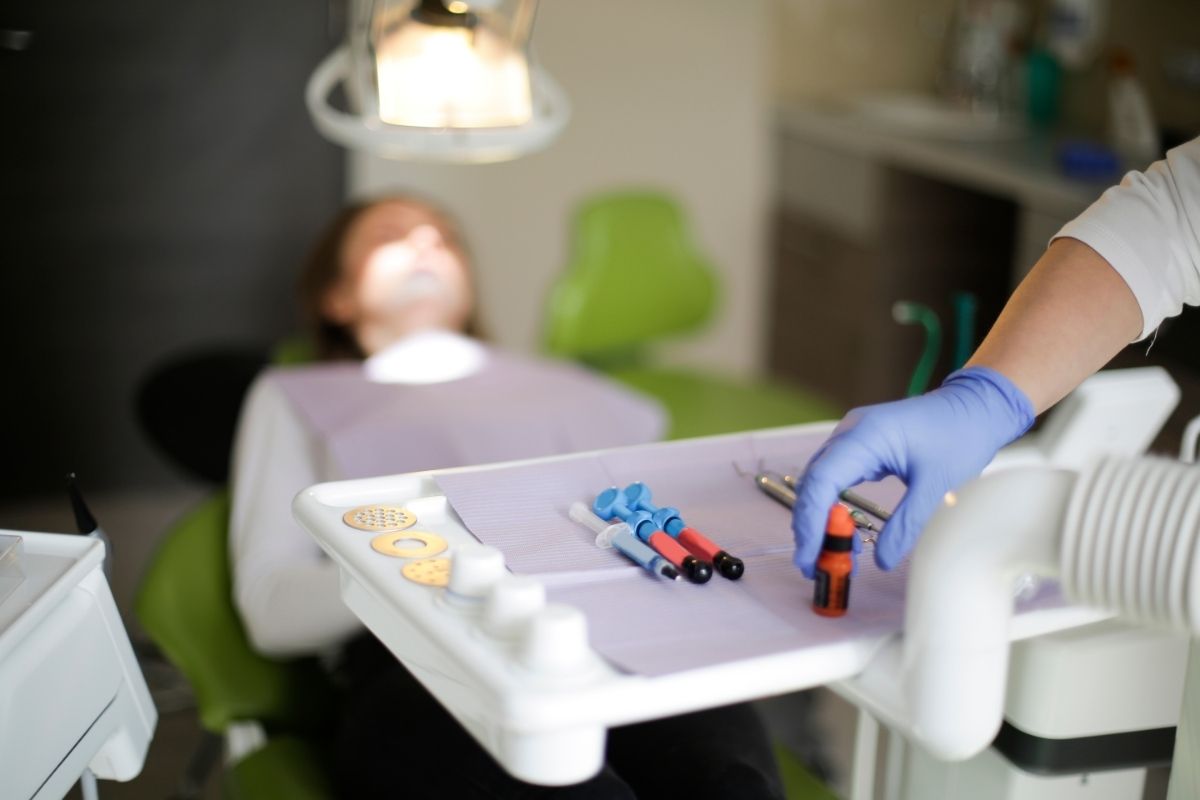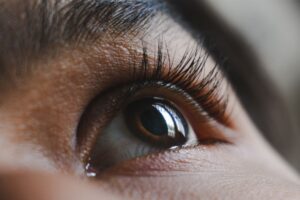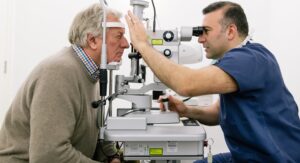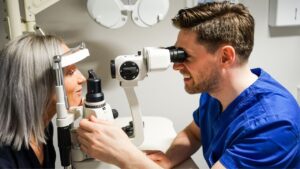Laser Eye Surgery recovery is often very short and painless – most patients resume their normal routine the following day.
However, to guarantee a good laser eye surgery recovery and that your eyesight stabilizes properly, it is usual practice to attend the clinic for a series of follow-up sessions within the first year after your treatment.
While independent and private clinics often include follow-up sessions in the cost of treatment, many high street providers do not and charge for them separately. Aftercare is a critical component of the Laser Eye Surgery procedure, and it’s wise to familiarize yourself with your clinic’s policies and select one that takes it seriously.
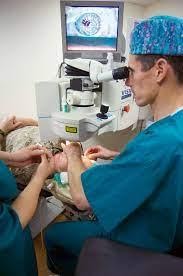
The initial visit will be the day following a laser eye surgery, followed by appointments at 3-4 weeks, 3 months, and 1 year, or as frequently as necessary for each person. During the sessions, your optometrist will do vision tests and inquire about how your recuperation is progressing.
Below, we discuss in depth what constitutes a high-quality aftercare program. But first, let’s examine the recuperation schedule for the usual laser eye surgery patient. It is somewhat slower in the case of LASEK/PRK and slightly quicker in the case of ReLEx SMILE. As previously stated, there is also an adjustment time after PRESBYOND® Laser Blended Vision. if you want to know the cost of laser eye surgery, you can visit https://www.personaleyes.com.au/costs/lasiklaser-eye-surgery-cost
The whole recuperation process for Laser Eye Surgery normally takes between three and six months. However, do not be discouraged: this is the time required for your eyes and eyesight to return to normal and the dry eye symptoms to disappear. Your eyesight will improve to near-optimal levels during the first few days of therapy.
Utilize the healing timetable to determine when you may resume your usual routine and certain activities. If you have a question regarding a particular activity or event, please leave it in the comments section below or send us an email and we will respond promptly.
The first 24-hour period
You will notice an improvement in your eyesight immediately after your laser eye surgery.
Your vision may be cloudy or fuzzy for the first several hours, therefore it is suggested that you relax and keep your eyes closed during this time.
It is recommended that you arrange for a buddy to pick you up from the clinic. We highly advise against traveling the subway later in the day, however, cabs and overground trains are OK.
You may resume mild activity at home, but avoid any activity that may result in anything touching or poking your eyes.
To reduce eye strain and facilitate recuperation, avoid any displays — televisions, cellphones, tablets, laptops, and e-readers — and any activities that involve extensive use of your eyes, such as reading.
It is recommended to take a bath rather than a shower to avoid irritating your eyes with soap and water.
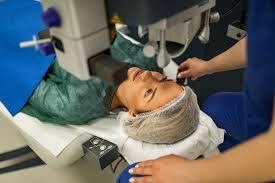
Make use of this time to establish a proper drop practice and become aware of factors such as air conditioning that might irritate your eyes.
You may notice very slight irritation or a feeling of dryness. Avoid rubbing your eyes and instead use the lubricant drops to provide comfort.
Abstain from drinking.
The next day
The day after your laser eye surgery, you will attend your first-day aftercare appointment at the clinic.
We recommend requesting transportation to the clinic from a friend or family member. Again, hailing a cab or riding the overground is OK; however, the Tube is not.
You may read and watch television as long as you use the recommended lubricating eye drops to prevent your eyes from drying out.
You may return to work, but be careful to wear appropriate protective eyewear and, if you are using a screen, to keep your eyes properly lubricated with the drops.
Flying is also OK, but have eye drops on hand due to the very dry air inside the aircraft.
- Lathering up in the shower is once again recommended, but with the same care.
- At night, you may expect to witness halos and starbursts around lights. These will eventually decrease as the corneal edema subsides.
- •You may have one glass of wine or two beers, but keep it light.
Day 3
- At this point, the cornea has restored a significant amount of strength, and you may return to the gym and do mild activity such as jogging, stationary cycling, and light weight lifting.
- •It’s critical to avoid putting anything into your eyes, such as perspiration, and to avoid rubbing or touching them.
- Make-up and perfume or aftershave are permitted.
- Over the following week, while your eyes continue to recover, some blurriness and fluctuation in vision may occur. Take additional precautions, particularly while driving in poor light. Temporary glasses may be recommended to assist you in adjusting to your new refraction throughout the first few months.
- Apart from avoiding strenuous exertion and taking extra care of your eyes, life has returned to normal.
Week 2
- Any residual symptoms, such as night glare, will progressively fade over the following three weeks and will be monitored at your 3-4 week and 3 month follow-up visits.
- Recreational activities such as swimming, football, tennis, squash, mountain biking, scuba diving, snorkeling, sailing, and skiing are once again safe (with the appropriate eye-wear).
- For at least one month after the treatment, refrain from high-impact activities such as rugby, boxing, martial arts, water skiing, and extreme sports.
- You may resume wearing eye makeup, but care is still suggested.
- If you are unclear if it is safe to continue particular activities, the clinic will assist you.
3 to 6 months
- Some individuals may develop dry eye symptoms for many months after therapy; these symptoms are handled with drops and progressively subside as the days pass.
- •There are a few limitations, such as avoiding sunbeds for the first six months.
- You will have three-month follow-up sessions and a final check-up after 12 months.
Final thoughts
Most people find it challenging to determine how long your laser eye surgery recovery will take. This article will help you understand what to expect at each stage of your recovery process. We made it easier by segmenting the effects into timelines.

